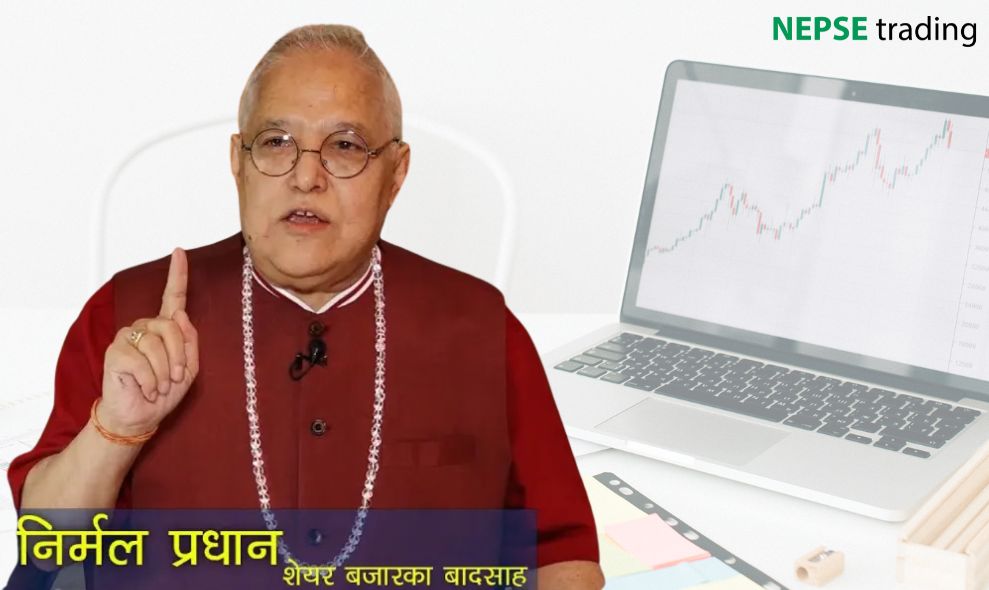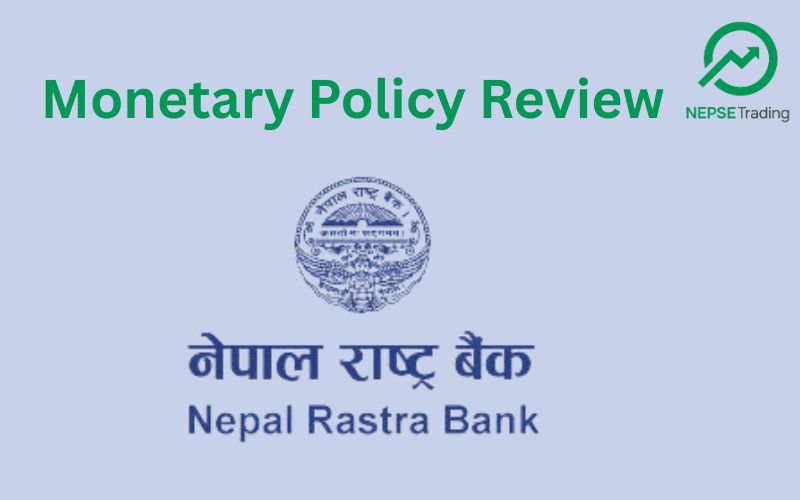By Dipesh Ghimire
The Story of Nirmal Pradhan: The Stock Market King

In the history of Nepal’s stock market, one name stands out above the rest—Nirmal Pradhan. He entered the stock market in 1998 (2055 B.S.) and experienced a significant downturn in 2000-2001 (2057–58 B.S.), resulting in heavy losses. However, Nirmal Pradhan’s journey did not end there. His perseverance and unwavering determination in the face of adversity eventually led him to become one of Nepal’s most successful investors, earning him the title of the "Stock Market King."
This is the story of Nirmal Pradhan’s struggles, resilience, and eventual success in the world of investments.
First Steps in the Stock Market
In 1998, Nepal’s stock market saw substantial growth, attracting a large number of new investors. Among them was Nirmal Pradhan, who invested heavily in shares of banks such as NIC Bank, Everest Bank, and other financial institutions. The bullish market encouraged many to enter, but few understood the real risks involved in stock investments.
The Stock Market Crash of 2000–2001
In 2000–2001, the stock market experienced a sharp decline, shattering the hopes of many investors. The market dropped by nearly 50%, causing substantial losses. Nirmal Pradhan was not spared—his investments took a significant hit.
He had purchased NIC Bank’s shares at NPR 800 per share, which fell to NPR 195. Likewise, Everest Bank's shares, which he had bought at NPR 300 per share, plummeted to NPR 100. Other blue-chip stocks like Nabil Bank and Standard Chartered Bank also saw dramatic declines. Nabil’s share price dropped to NPR 465, while Standard Chartered’s tumbled to NPR 990.
To repay the loans he had taken from the bank to finance his investments, Nirmal was forced to sell many of his shares at significantly reduced prices. For instance, he sold Bank of Kathmandu shares, which he had bought at NPR 1,500, for just NPR 220 per share. The situation was dire, and many investors left the market altogether.
A Decision to Bounce Back
Despite the setbacks, Nirmal Pradhan did not give up. Rather than exiting the stock market like many of his peers, he viewed the crisis as an opportunity for a comeback. Even though he had lost much of his investment, he was determined to rebuild his portfolio and recover the money he had lost.
Nirmal sought the help of prominent business figures, including Binod Chaudhary, a leading businessman in Nepal. Chaudhary offered him support, allowing him to take out additional loans. Nirmal secured NPR 20 million in loans from Chaudhary's bank, which allowed him to reinvest in the market.
The Everest Bank Investment
With guidance from stock market experts like Jeevan Basnet, Nirmal made a strategic decision to invest in Everest Bank. He started buying Everest Bank’s shares at NPR 300 per share, gradually increasing his stake as the stock’s value grew. Some of his friends questioned his decision to invest in Everest Bank, especially when other strong banks like Nabil and Standard Chartered were available. However, Nirmal had a simple reply: "I love Mount Everest, and that’s why I’m investing in Everest Bank."
His belief in Everest Bank was bolstered by advice from his mentor, Jeevan Basnet, who assured him that the bank had a promising future. Following this advice, Nirmal continued to buy shares of Everest Bank, investing up to NPR 1,200 per share. Over time, his initial purchase of 200,000 shares multiplied, thanks to bonus shares and stock splits, increasing his holdings to 1 million shares.
Success Through Stock Loans
Nirmal Pradhan realized the importance of stock loans during this period. At the time, banks were offering up to 90% financing for stock investments. Nirmal took full advantage of this, using his assets as collateral to buy even more shares.
His perseverance paid off. The shares of Everest Bank, which he had purchased for NPR 300, soared to NPR 1,700. Likewise, the shares of Standard Chartered Bank, which he had bought for NPR 1,500, skyrocketed to NPR 9,000. Such remarkable growth in his investments not only motivated Nirmal but also established him as one of the top investors in the market.
Investments in Kumari Bank and Laxmi Bank
Following his success with Everest Bank, Nirmal Pradhan turned his attention to Kumari Bank’s initial public offering (IPO), buying 200,000 shares. He later sold these shares for NPR 2,000 each, realizing a substantial profit. He also invested in Laxmi Bank’s IPO, purchasing 400,000 shares at NPR 100 per share, which again yielded significant returns.
At the time, it was easier to acquire shares during IPOs. Investors often received around 50% of the shares they applied for, providing an attractive opportunity for those willing to take the risk.
Turning Crisis into Opportunity
One of the hallmarks of Nirmal Pradhan’s journey was his ability to turn a crisis into an opportunity. Despite the losses he faced during the stock market downturn, he kept his focus on long-term gains. With support from friends, mentors, and financial institutions, he was able to recover and even surpass his previous achievements.
Reflecting on his experience, Nirmal noted, "In times of crisis, I realized the importance of leveraging opportunities. I was fortunate to have the support of key individuals and institutions, which helped me make a strong comeback in the stock market."
Nirmal Pradhan’s story is an inspiring one for investors everywhere. His journey in the stock market demonstrates that success is not just about making the right investments but also about staying resilient in the face of adversity. While many investors lost hope and left the market during the downturn of 2000–2001, Nirmal’s determination, strategic planning, and reliance on expert advice enabled him to turn his fortunes around.
His story serves as a valuable lesson for anyone involved in the stock market—risk is inherent, but those who are willing to persevere, take calculated risks, and seize opportunities can achieve great success. Nirmal Pradhan, the "Stock Market King," exemplifies the power of resilience and the importance of believing in long-term goals even during challenging times.









